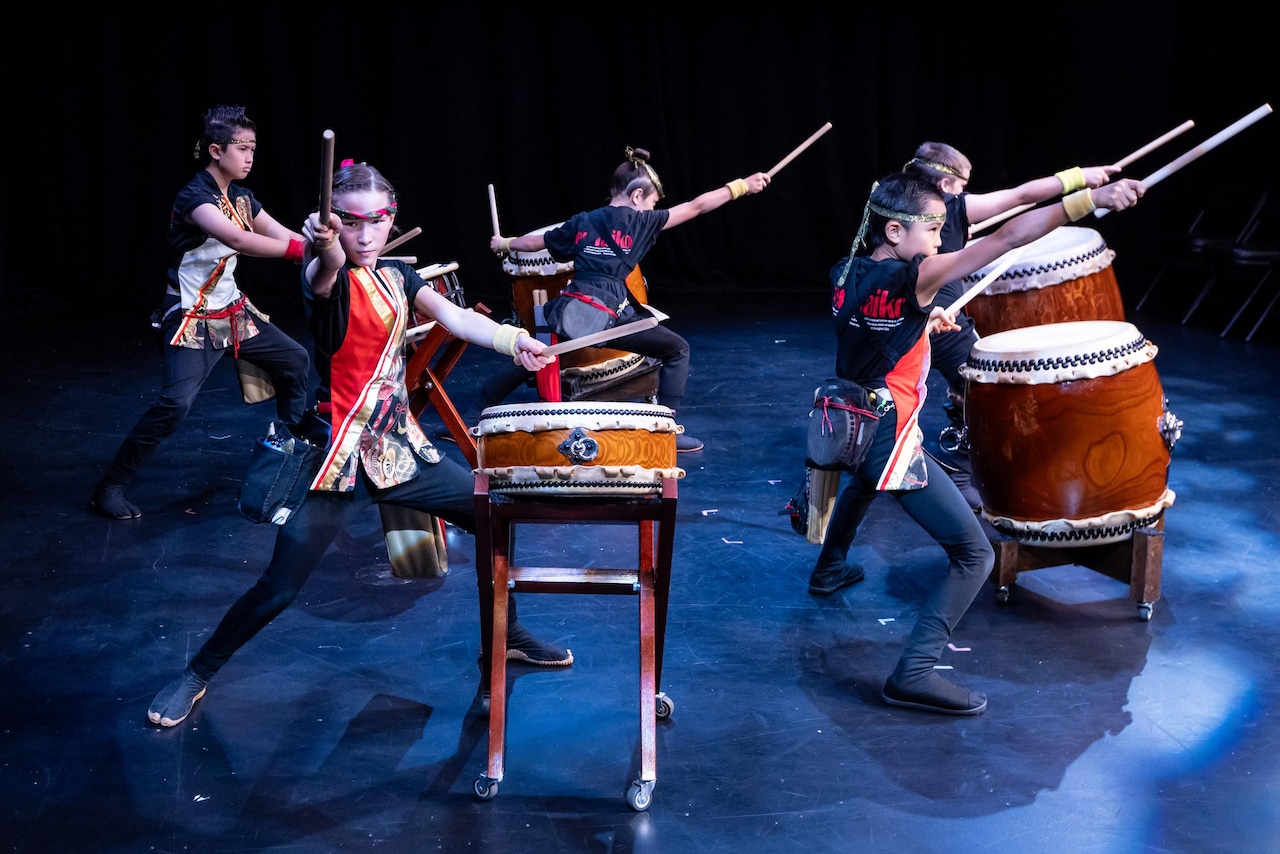
The last half decade has been difficult for artists and culture creators in Oregon and across the country.
The COVID pandemic was hard on arts organizations, as audiences have been slow to return and relief money has dried up.
And the new administration of President Donald Trump hasn’t brought more stability.
Earlier this week, Trump ordered a freeze on spending on federal grants and then, days later, rescinded the order.
One of the main funders of arts projects in Oregon, The Oregon Arts Commission gets around 30% of its funding from the federal government.
“ As a state arts agency, receiving money from the federal government is a requirement,” said Subashini Ganesan-Forbes, chair of the Oregon Arts Commission.
But, Ganesan-Forbes, she cannot be distracted by the daily flurry of news out of Washington, D.C.
“As the Chair of the Arts Commission, I don’t have the luxury of reacting to the everyday executive order things that come in and out,” she said. “I have to trust that our democracy and our legislative process and our attorney generals and, and all of our courts are going to take care of that work.”
That way, she said, she can focus on what these bills focus on: A long-term plan for supporting arts and culture in Oregon.
One of the ways Ganesan-Forbes and others are hoping to keep that support strong is by merging two existing agencies: The Oregon Arts Commission and the Oregon Cultural Trust.
The Oregon Arts Commission and the Oregon Cultural Trust have a lot in common.
Both give out grants throughout the state supporting the arts, humanities and culture. While they are funded in different ways – the Oregon Arts Commission largely through state and federal money and the Oregon Cultural Trust through donations, license plates and interest – both fall under Business Oregon, Oregon’s economic development agency.
“Business Oregon is a $2 billion agency that operates close to 90 different programs from infrastructure to broadband,” said Brian Rogers, the executive director of the Oregon Arts Commission and the Oregon Cultural Trust on a call Wednesday.
Another thing the agencies share? An executive director.
They do, however, have two separate boards of directors.
“ You can see that there’s a lot of similarities between the arts commission and cultural trust,” Rogers said. “And over the years, there’s been some confusion. A little bit of struggling to find the clarity between the differences.”
For example, the arts commission runs Oregon’s Poetry Out Loud competition. The cultural trust runs the state’s poet laureate program.
Under a combined program, “ We will have a lot more flexibility for education, for advocacy, for relationship with the governor’s office, for building a true arts and culture brand,“ said Ganesan-Forbes.
“ There’s a lot of wonderful things about Business Oregon and Business Oregon has been a wonderful partner and a wonderful incubator for both the arts commission and the trust,” added Sean Andries, chair of the Oregon Cultural Trust.
“But when you look at the trajectory of something like Travel Oregon, since they left Business Oregon or Oregon Film since they left Business Oregon, it has allowed them to grow in their own way and to have more agency about the ways that they operate.”
After a process that began in 2018 looking into the feasibility of a merger, in 2024 both boards voted unanimously to approve to join officially and move out from under Business Oregon.
They’ve constructed a plan that would maintain each agency’s existing priorities and not result in job loss.
But, it’s not as easy as just making the change.
The Oregon Arts Commission was created in 1967 and is part of a national program of arts commissions, one in each state. The Oregon Cultural Trust was created in 2001 under the Secretary of State.
Their merger requires legislative action.
Lawmakers will have to approve two bills to make that happen: House Bill 2283 and House Bill 3048.
Language still needs to be added to those bills, but Rep. Rob Nosse, a Democrat from Portland and a leader in the Oregon Arts and Culture Caucus, is optimistic about the possibility of bringing the two groups together.
“I am excited for the merger,” said Nosse Thursday. “It will bring the resources and approaches of these two entities together to lift up the arts in this state.”
The arts, artists and cultural programs, all involved agree, need support. And those behind the merger think it could increase that support in Oregon.
“ Ever since the heights of the pandemic, there’s been a real yearning for more stability in the funding,” said Andries.
“We have to work on the long game,” Ganesan-Forbes said. “We have to trust that democracy will continue to exist and we are going to do everything we can to build right now so that the future is bright.”
– Lizzy Acker covers life and culture and writes the advice column Why Tho? Reach her at 503-221-8052, [email protected].
Our journalism needs your support. Subscribe today to OregonLive.com.
